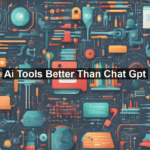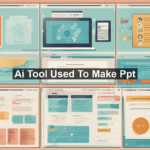Picture this: You have a brilliant idea for an application, and you’re ready to dive into coding it in Python. But, wouldn’t it be so much easier if there was a tool that can assist you in generating Python code seamlessly? Welcome to the future where AI tools are not just a sci-fi concept but a reality, enhancing developer productivity like never before. This blog post unravels the marvels of AI tools that can generate Python code, how they work, and why they’re becoming an essential asset for coders worldwide.
What Are AI Code Generators?
AI code generators are software solutions engineered to create programming code based on pre-set parameters or user inputs. These tools employ sophisticated machine learning algorithms to understand and mimic human coding patterns. This means they can assist in generating accurate, efficient, and sometimes even innovative code, reducing the overall development time and minimizing human errors.
Why Python? The Rise of a Beloved Language
Python has emerged as a leading language due to its simplicity and versatility. Whether you are developing a web app, conducting data analysis, or going into machine learning, Python offers a handful of libraries and strong community support. The rise of Python is well documented and even giants like Real Python have noted its widespread adoption. Python’s syntax is intuitive, making it perfect for use in AI-driven code generation.
Common Features of AI Tools for Python Code Generation
Intelligent Code Suggestions: These tools can suggest code snippets or complete entire blocks of code based on the context, akin to predictive text on your mobile device.
Error Detection and Correction: AI tools can identify potential bugs or errors in the code and offer fixes, ensuring higher code quality.
Language Translation: Some AI tools offer the capability to convert code from one programming language to another seamlessly, including Python.
Custom Code Templates: Users can set predefined templates to standardize and speed up the coding process.
How Do AI Code Generators Work?
The secret behind these tools is their underlying machine learning models. These models are trained on vast datasets of existing code, learning the intricacies of Python syntax and logic. When you provide input to an AI code generator, it matches your requirements with its learned patterns to output relevant Python code.
A great way to understand this technology is through OpenAI’s Codex or GitHub Copilot, which leverages OpenAI’s GPT models. These sophisticated technologies work by predicting the next sequence of code, refining the output until it’s a usable piece of Python code.
The Benefits of Using AI Tools for Python Code
Why are developers turning to AI for their coding needs? Here’s how AI tools are proving their mettle:
- Boosted Productivity: AI tools can handle repetitive and mundane coding tasks, freeing developers to focus more on the creative and strategic aspects of development.
- Reduced Errors: By automatically detecting and suggesting fixes for potential issues, these tools significantly cut down debugging time.
- Learning Aid: For beginners or amateur programmers, AI coders offer guidance and learning examples that enhance understanding and skill.
- Consistent Code Quality: With predefined templates and suggestions, AI ensures that the code remains consistent and adheres to best practices.
Drawbacks and Considerations
Despite their promise, AI code generators aren’t without their limitations:
- Cost: Some AI coding tools can be pricey, especially the more advanced ones that offer additional functionality.
- Dependence: Over-reliance on these tools might impair a programmer’s coding skills over time.
- Security: As with any external tool, there is a potential risk concerning code privacy and data security.
The Verdict: Are AI Code Generators the Future?
As AI technology continues to evolve, the capabilities of AI code generators will only become more sophisticated. They already show promise in aiding both novice and experienced developers by reducing coding time, enhancing learning opportunities, and improving code quality. If employed judiciously, they can be a valuable asset in every coder’s toolkit.
With Python’s vast popularity and the growing efficiency of AI tools, it seems likely that the future of coding might well involve a symbiotic relationship between human intelligence and artificial intelligence. Interested in more on how AI is changing industries? Check out this comprehensive Forbes article on AI’s industrial impact.
The question now isn’t whether these tools will become commonplace, but rather, how quickly you can harness their potential to create better, faster, and more innovative Python applications.











